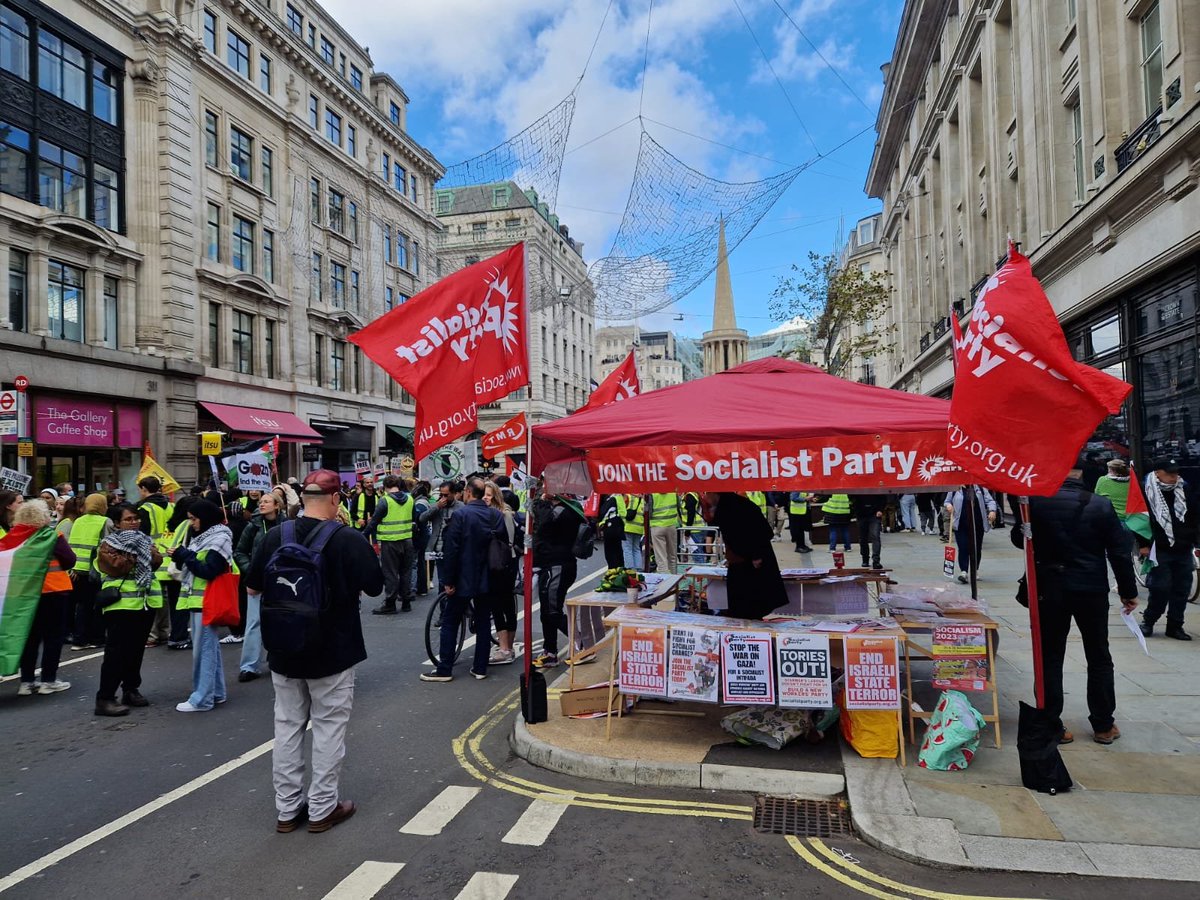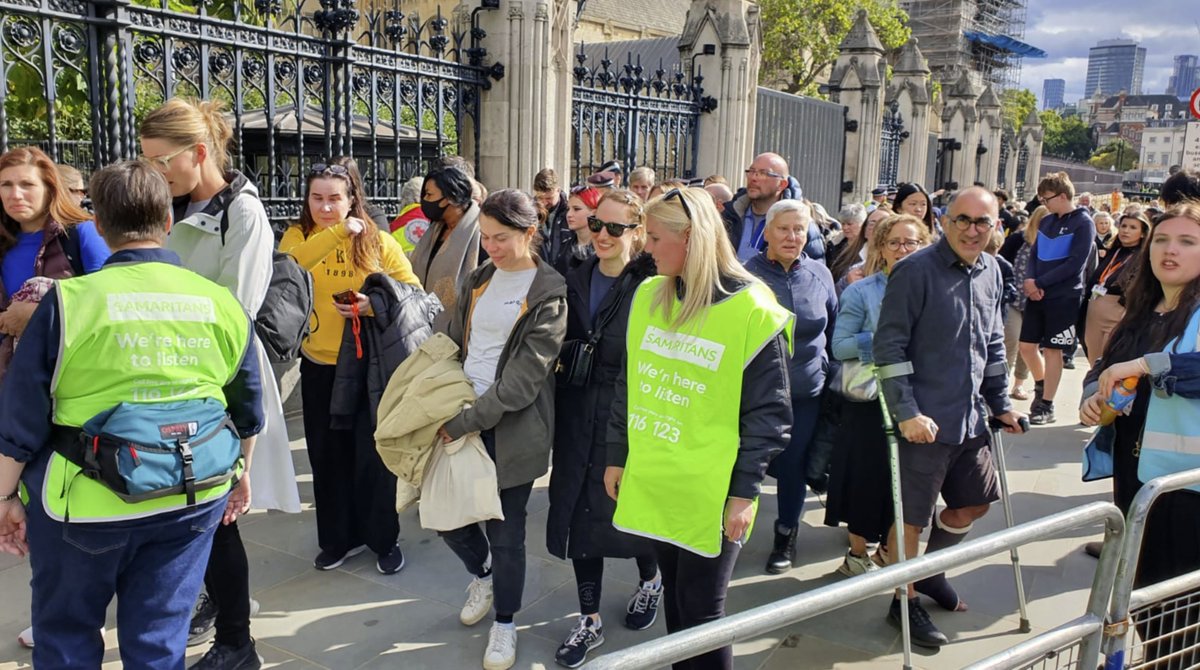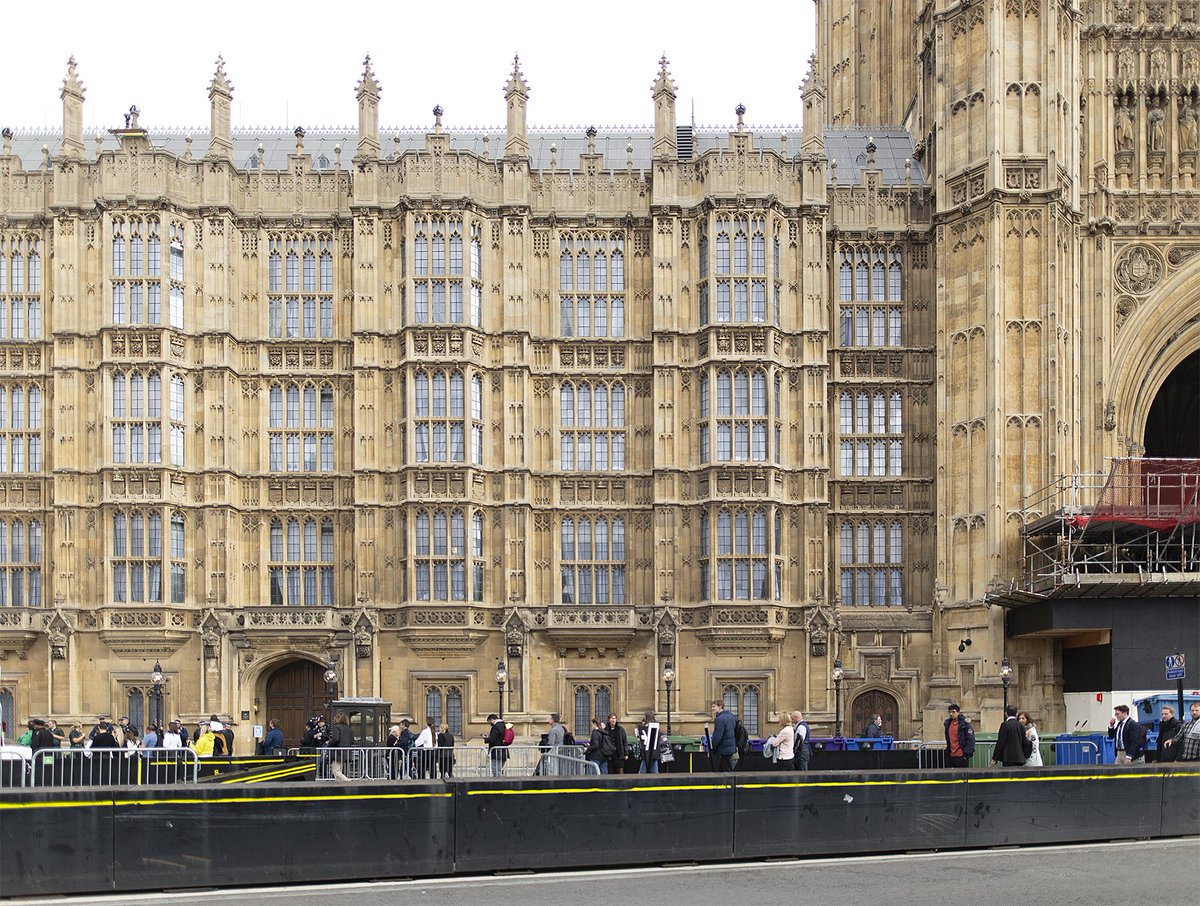The BBC has now run a day-long anti vaccination campaign. Possibly the most-viewed coordinated anti vaccination campaign in the world so far.
It centred around Novak Djokovic.
Here is a short thread on how it worked.



It centred around Novak Djokovic.
Here is a short thread on how it worked.



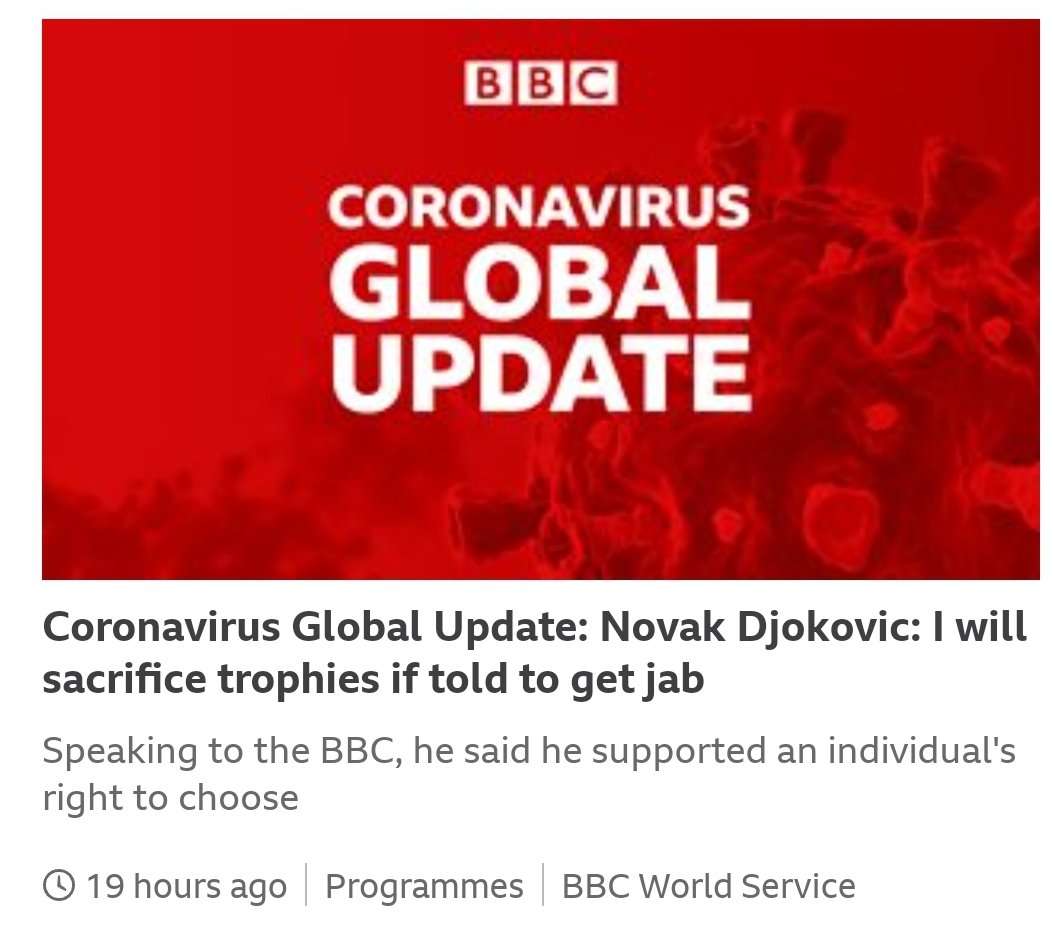
They got an 'exclusive interview' with Novak Djokovic, the #1 ranked men's tennis player, and the only man in the top 100 who has not taken a covid vaccine.
Everyone who pays attention to tennis knows his stance, but he quickly falls out of the news outside of major tournaments.
Everyone who pays attention to tennis knows his stance, but he quickly falls out of the news outside of major tournaments.

Then they filled their flagship morning news program - which they believe sets the news agenda for the day - with ads for their interview, running snippets from it continuously.
Other outlets copied the story, and it has trended all day on Twitter as a result.

Other outlets copied the story, and it has trended all day on Twitter as a result.


They didn't simply run it as a regular article, they also added several secondary articles, and a 'timeline' of updates on a non-breaking news story.
And they ran this as a 'World News' story, not a sport story, displacing stories like the Ukraine/Russia update.

And they ran this as a 'World News' story, not a sport story, displacing stories like the Ukraine/Russia update.


It is interesting to note that - despite the extremely heavy coverage - the story very quickly dropped to 3rd most read article on the BBC news. In other words: this was not a naturally 'massive' story - it was prompted to be read.
Alongside this, staff put out notes on social media running still more promo for the interview.
Some of these featured Amol Rajan, who fronts the interview, and is being pushed as a sort of next Piers Morgan - an editor/celeb interviewer who ideally becomes a celeb themselves.
Some of these featured Amol Rajan, who fronts the interview, and is being pushed as a sort of next Piers Morgan - an editor/celeb interviewer who ideally becomes a celeb themselves.
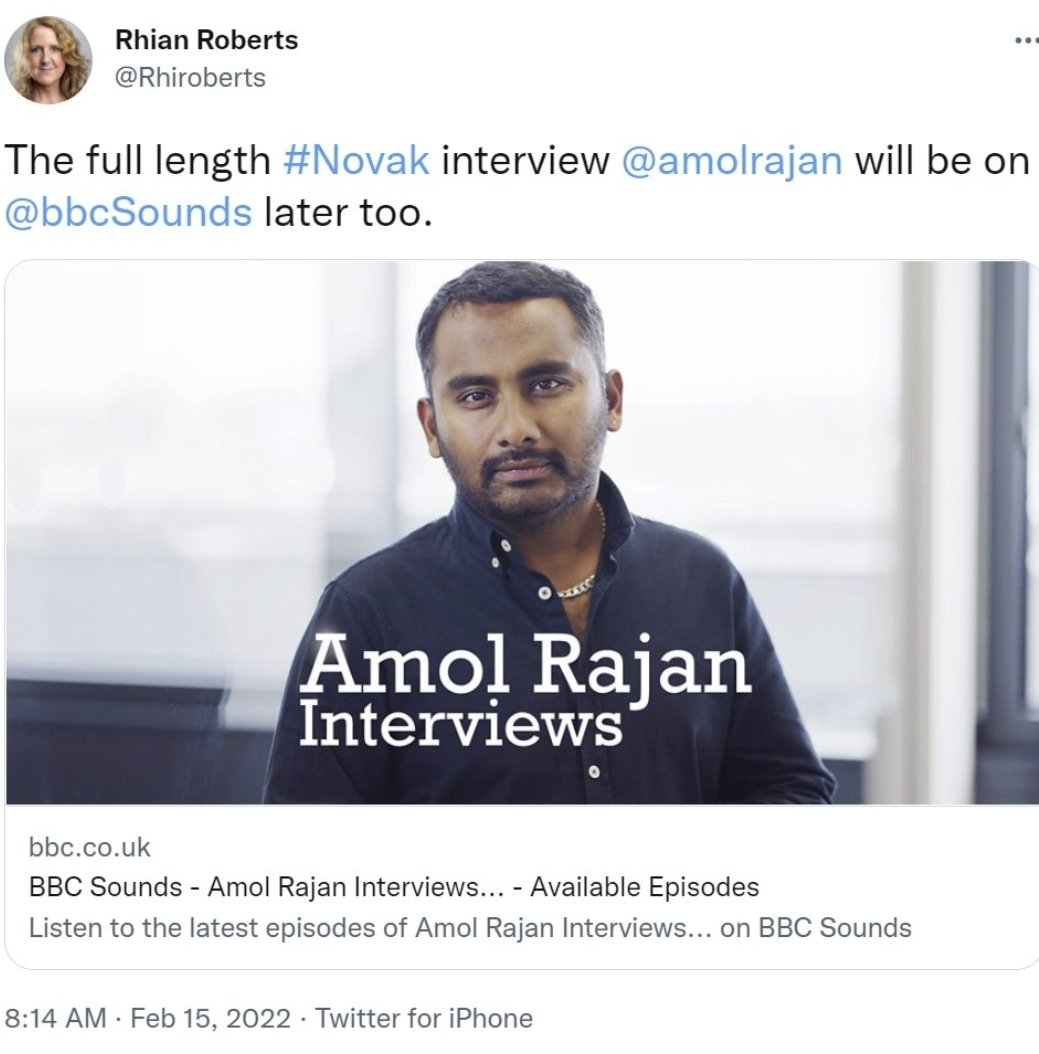
Almost all of these articles ended with this 'call to action', urging people to watch the show at a specific time on BBC One, and linking through to the exact location where it can be watched. 

If you've ever done much campaign marketing, you will know that trying to establish an idea requires a few things:
1. A message.
2. Proof points to make that message convincing.
3. Distribution, to create awareness.
4. Reinforcement.
This coordinated campaign contains all 4.
1. A message.
2. Proof points to make that message convincing.
3. Distribution, to create awareness.
4. Reinforcement.
This coordinated campaign contains all 4.
First - the message:
The story focuses on his unvaccinated status, and heavily amplifies his assertion that he is not 'anti vax', he simply isn't vaccinated. This message redefines the idea of 'anti vax', and prompts the idea it is simply pro choice, and a sign of determination.
The story focuses on his unvaccinated status, and heavily amplifies his assertion that he is not 'anti vax', he simply isn't vaccinated. This message redefines the idea of 'anti vax', and prompts the idea it is simply pro choice, and a sign of determination.

Second the proof points:
Djokovic is a living 'proof point' himself - that you can be extremely healthy without the vaccine. He is an extreme outlier, the only top 100 mens player to be unvaccinated.
Djokovic is a living 'proof point' himself - that you can be extremely healthy without the vaccine. He is an extreme outlier, the only top 100 mens player to be unvaccinated.
He does not represent the masses, he is way beyond the norm, but he is the perfect person to point to and say 'well he isn't vaccinated'. The main negative consequence he has suffered cannot apply to anyone else, and the BBC paints his stance as 'determination'.
Thirdly, distribution.
You cannot buy the top spot on the BBC news. It would be worth millionso, due to the huge number of people who see it, particularly first thing in the morning.
Radio 4 Today is similar.
The dozen+ articles and hundreds mentions of Novak today the same.
You cannot buy the top spot on the BBC news. It would be worth millionso, due to the huge number of people who see it, particularly first thing in the morning.
Radio 4 Today is similar.
The dozen+ articles and hundreds mentions of Novak today the same.

On top of that there are the secondaries it creates: copycat articles across all major news sites, trending on Twitter, extra mentions across gossip radio shows.
All of this leads to those central articles on the BBC, which in turn have a call to action to watch the interview.
All of this leads to those central articles on the BBC, which in turn have a call to action to watch the interview.

And finally reinforcement through all that - repeated mentions, followed by a primetime BBC One show that goes into detail on his story: not he is the world's #1 tennis player, and he will remain unvaccinated, and that actually that is not 'anti vax', just pro choice. 

And so that's how the BBC ran the world's largest coordinated anti vaccination campaign.
I'm not saying that the BBC intended it to be an anti vax campaign (I very much doubt that), or that it will be successful. I am simply saying that is what - in effect - it is.
I'm not saying that the BBC intended it to be an anti vax campaign (I very much doubt that), or that it will be successful. I am simply saying that is what - in effect - it is.

• • •
Missing some Tweet in this thread? You can try to
force a refresh







